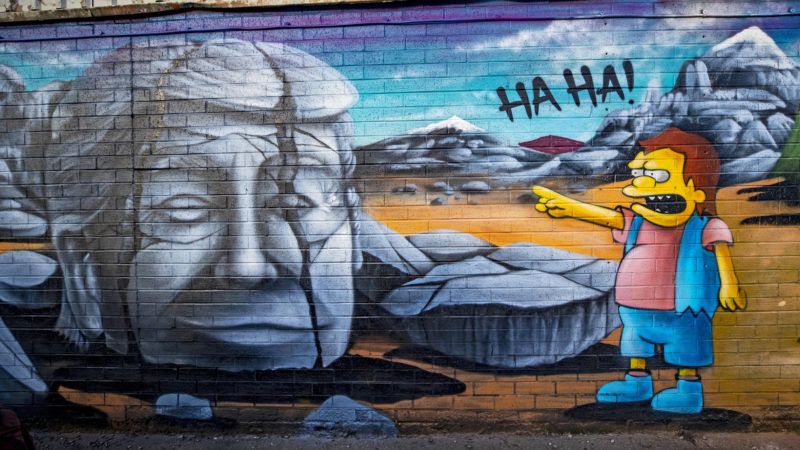New Blows to Trump Campaign Election Fraud Theories
Plus: Hillbilly Elegy film flops, TikTok would like to know if it's still banned, and more...

President Donald Trump and his campaign are still flailing about for evidence of voter fraud and ways to cast doubt on the outcome of the 2020 election. But the latest polling shows most of the public does not dispute the election results, and Trump lawsuit victories in battleground states have been yielding no new pathways to a Trump electoral win. Meanwhile, more and more facts keep stacking up against Trump's election conspiracy theories.
Former Vice President Joe Biden wins without disputed Pennsylvania ballots. In Pennsylvania, mailed ballots that showed up after November 2 are still being disputed. But state officials have certified that Biden had enough votes to win Pennsylvania even excluding all of the ballots that arrived November 3–6.
Just in: Pennsylvania Secretary of State reports just 10k ballots came in between Nov. 3 and Nov. 6. Biden wins Pennsylvania without those votes.
— Amy Gardner (@AmyEGardner) November 11, 2020
A Pennsylvania postal worker who alleged fraud has recanted, telling investigators with the U.S. Postal Service that he made up claims about his bosses telling him to backdate mail-in ballots. The Erie, Pennsylvania, postal employee, Richard Hopkins, said on Monday that these claims were fabricated, the U.S. House Oversight Committee reported yesterday.
BREAKING NEWS: Erie, Pa. #USPS whistleblower completely RECANTED his allegations of a supervisor tampering with mail-in ballots after being questioned by investigators, according to IG.
THREAD:
— Oversight Committee Democrats (@OversightDems) November 10, 2020
"Investigators informed Committee staff today that they interviewed Hopkins on Friday, but that Hopkins RECANTED HIS ALLEGATIONS yesterday and did not explain why he signed a false affidavit," the Oversight Committee tweeted Tuesday.
The New York Times called election officials in every state; none suspected irregularities. State officials "representing both political parties said that there was no evidence that fraud or other irregularities played a role in the outcome of the presidential race, amounting to a forceful rebuke of President Trump's portrait of a fraudulent election," the Times reported yesterday. "Top election officials across the country said in interviews and statements that the process had been a remarkable success despite record turnout and the complications of a dangerous pandemic."
The Department of Homeland Security (DHS) keeps shooting down voter fraud conspiracies.
Your daily https://t.co/uXYOisiVPj reminder! We posted a new entry y'day on why undervotes happen (& aren't unusual). More content in the pipeline!
And don't forget: (1)Hammer/Scorecard is still nonsense, &(2) DHS IS NOT carrying out a fraud sting op using watermarked ballots.???? pic.twitter.com/pNALfql3wO
— Chris Krebs #Protect2020 (@CISAKrebs) November 10, 2020
"From his perch atop the DHS Cybersecurity and Infrastructure Security Agency, Chris Krebs has been using his agency's 'Rumor Control' website—and his personal Twitter feed—to take on the viral conspiracies that are circulating widely in conservative circles," notes Politico:
Krebs was among the first to pour cold water on #Sharpiegate, a quickly debunked conspiracy theory pushed by the Trump campaign and the Republican National Committee. The theory posited that ballots in Arizona filled out using a Sharpie pen had been invalidated because they could not be read.
"Don't promote disinfo! Stop spreading #SharpieGate claims," Krebs wrote last week.
And Rumor Control was out front early warning voters that results might be delayed because of the need to count all valid mail-in ballots.
FREE MINDS
The Netflix movie version of J.D. Vance's popular Hillbilly Elegy, directed by Ron Howard, seems to be getting almost universally terrible reviews. The Los Angeles Times called it "an extended Oscar-clip montage in search of a larger purpose, an unwieldy slop bucket of door-smashing, child-slapping, husband-immolating histrionics." The film plays "less like the exploration of a life or an evocation of a time and place and more like an informercial [sic] for J.D. Vance," suggests Alonso Duralde in The Wrap. "A banal, trite story of family dysfunction devoid of any nuance or normalcy" and "laughably horrendous in every way," says Collider. "Possibly the worst movie I've seen in years," writes Alissa Wilkinson at Vox. Not "politically problematic," just "bad," declares The Globe and Mail. And so on.
FREE MARKETS
TikTok would like to know if it's still banned. The company behind the popular video app "has filed a petition in a US Court of Appeals calling for a review of actions by the Trump administration's Committee on Foreign Investment in the United States (CFIUS)," reports The Verge. "The reason, according to the company, is that it hasn't heard from the committee in weeks about an imminent deadline for parent company ByteDance to sell off US assets over national security concerns."
QUICK HITS
• Millennials are old.
• The sleep hormone supplement melatonin may reduce the risk of COVID-19.
• Cindy McCain is on the advisory board for Joe Biden's transition team.
• Californians voted down a business tax increase. "Voters have rejected Proposition 15, a ballot measure that sought to force large businesses to pay higher property taxes but likely fell victim to concerns about its economic impact on employers and consumers amid the pandemic-sparked recession," reports the Los Angeles Times.
• Nebraska will soon ban vaping inside buildings, including private offices, restaurants, and bars.
• The Libertarian Party "has now received well over a million votes for three elections in a row, and has more state ballot lines and registered voters than ever before," notes Cato Institute Executive Vice President David Boaz.
• Would someone "have standing to challenge the mandate to wear a mask?" mused Justice Clarence Thomas during oral arguments for the latest Affordable Care Act case.
• Texas is paying people for voter fraud reports.



Show Comments (663)